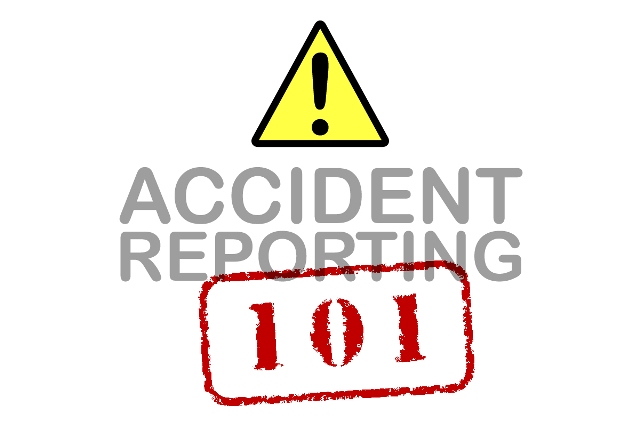Accident Reporting 101
Date: Wednesday, 14 September 2016. -
Blog, First Aid, Health & Safety
The Reporting of Injuries, Diseases, and Dangerous Occurrences Regulations (RIDDOR) requires employers to report to the relevant enforcing authority and keep records of:
- Work-related deaths.
- Work-related accidents which cause serious injuries to workers, or which result in a worker being incapacitated for more than seven consecutive days.
- Diagnosed cases of certain industrial diseases.
- Certain dangerous occurrences (near-miss accidents)
- Injuries to a person who is not at work, such as a member of the public, which are caused by an accident at work and which result in the person being taken to hospital from the site for treatment.

Why should you report these incidents?
Reporting certain incidents is a legal requirement. The report informs the local authorities of serious incidents and cases of disease, meaning they can investigate how & where risks arise and whether they need to be investigated.
This information can be used as an aid to creating a risk assessment, and helping to develop solutions to potential risks.
What accidents should be reported?
A RIDDOR report is only required when the accident is work-related and results in an injury which is reportable.
The key to deciding whether the accident that led to death or injury is work related, is to figure out is the accident was related to:
- The way the work was organised, carried out or supervised.
- Any machinery, plant, substances, or equipment used for work
- The condition of the site, or premises, where the accident happened.
If none of these factors are relevant, then it is likely that a report will not be necessary.
What types of injuries should be reported?
Deaths – All deaths to workers / non-workers must be reported if they are the result of a work-related accident. A suicide is not something that should be reported, as it is not the result of a work-related accident.
The list of ‘specified injuries’ in RIDDOR 2013 includes:
- A fracture. (Other than to fingers, thumbs, & toes)
- Amputation of a limb.
- Permanent loss of sight, or reduced sight.
- Injuries which lead to organ damage.
- Serious burns which either cover more that 10% of the body; or damage the eyes, respiratory system, or other vital organs.
- Scalping (separation of skin from the head) which require treatment in hospital.
- Unconsciousness caused by a head injury or asphyxia.
- Any other injuries which are a result of working in an enclosed space and lead to; hypothermia, heat-induced illness or require admittance to hospital for more than 24 hours.
How should accidents be reported?
You can report any incidents or accidents online at www.hse.gov.uk/riddor and complete the online report form, or by telephone on 0845 300 9923 between the hours of 8:30am & 5pm Monday – Friday.
